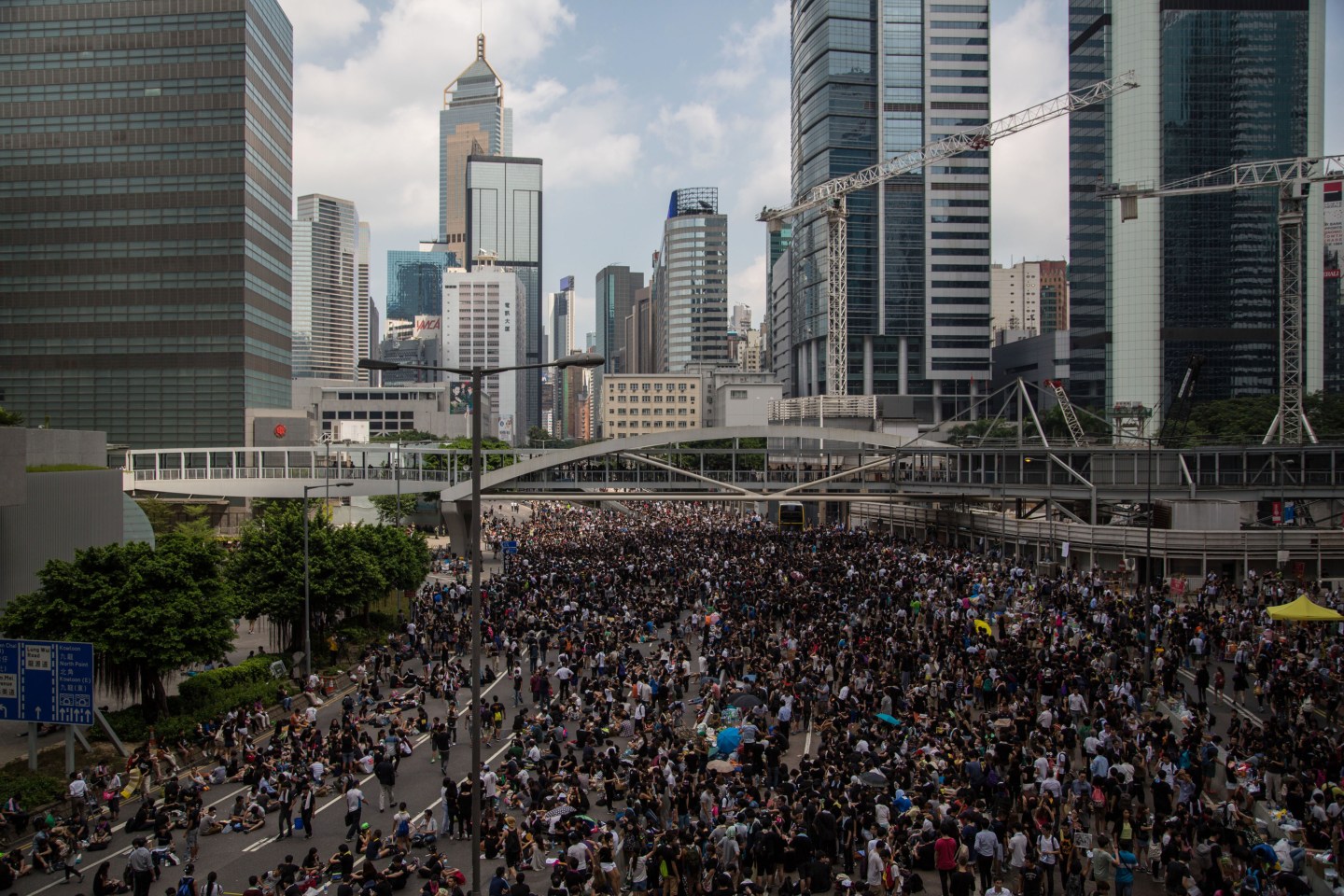What’s next? That’s the question in Hong Kong, where tens of thousands of students and pro-democracy protestors clogged some of the city’s main throughways Sunday night before returning Monday to shut down transportation in areas around government headquarters.
The student-led protests, later joined by pro-democracy organizer Occupy Central, are about establishing democracy in China’s special region, even though it remains impossible to see Beijing’s Communist Party allowing that to happen. Just a month ago Occupy Central was admitting its failures in establishing free elections in Hong Kong.
Students apparently didn’t get the message. As the working day ended in Hong Kong Monday, they showed up by the thousands in central areas of the city, as they had done on Sunday.
Earlier, the local Hang Seng stock market index had tumbled nearly 2% in reaction to the demonstrations. However, the mainland’s biggest market in Shanghai appeared unaffected, rising 0.4%.
The scene was mostly peaceful Monday, after sporadic flashes of violence on Sunday night in which riot police used tear gas to disperse protesters. They subsequently returned to defy orders. It was the first time tear gas was used in Hong Kong since protests during a WTO summit in 2005. Police withdrew altogether Monday because of well-behaved crowds. Still, it was shock to see confrontation in a city where finance and commerce reign above all.
On the Chinese mainland, Instagram has been shutdown to prevent protest images going viral. People captured China’s state-run press massaging the news to suit its own narrative.
Alternate universe TV: "Thousands gather in HK to celebrate the national day, show support for general election plan" pic.twitter.com/OJNutHS4fX
— Gady Epstein (@gadyepstein) September 29, 2014
The frustrations of a younger generation of Hong Kong citizens have bubbled to the surface. Hong Kong housing is notoriously expensive, they see their government catering to tycoons and billionaires before average people, and there’s growing resentment at mainland China’s incursions into the former British colony—both politically, and physically (mainland tourists on vacations and shopping trips overrun the city). Many locals are afraid of losing their identity.
The Hong Kong government often sides with Beijing, including in its new plan for electing Hong Kong’s leader. The candidates must essentially be pre-approved by Beijing. That quashed the prospect for liberal, pro-democracy candidates to appear on the ticket, however slight their chances of election have been in the past.
Over the summer I spoke to a foreign businessman in Hong Kong who was genuinely scared at the prospects of Occupy Central. I could tell he wasn’t just reacting in self-interest.
His fears started with the Chinese translation of ‘occupy.’ Unlike its rather passive English meaning, in Chinese occupy is more aggressive—conveying the use of force to seize something. He said mainland leaders disliked the Occupy Central movement on the principal of its aggressive name.
This businessman thought shutting down the city, which is the lifeblood of commerce into mainland China, wouldn’t be tolerated by Beijing for very long—and might elicit heavy-handed responses that would be difficult to take back.
That looks unlikely—both a shutdown and a Beijing response, even he admitted. But the crowds could still grow larger. National Day, a public holiday commemorating the Communist Party’s rise to power, starts Wednesday in China.






